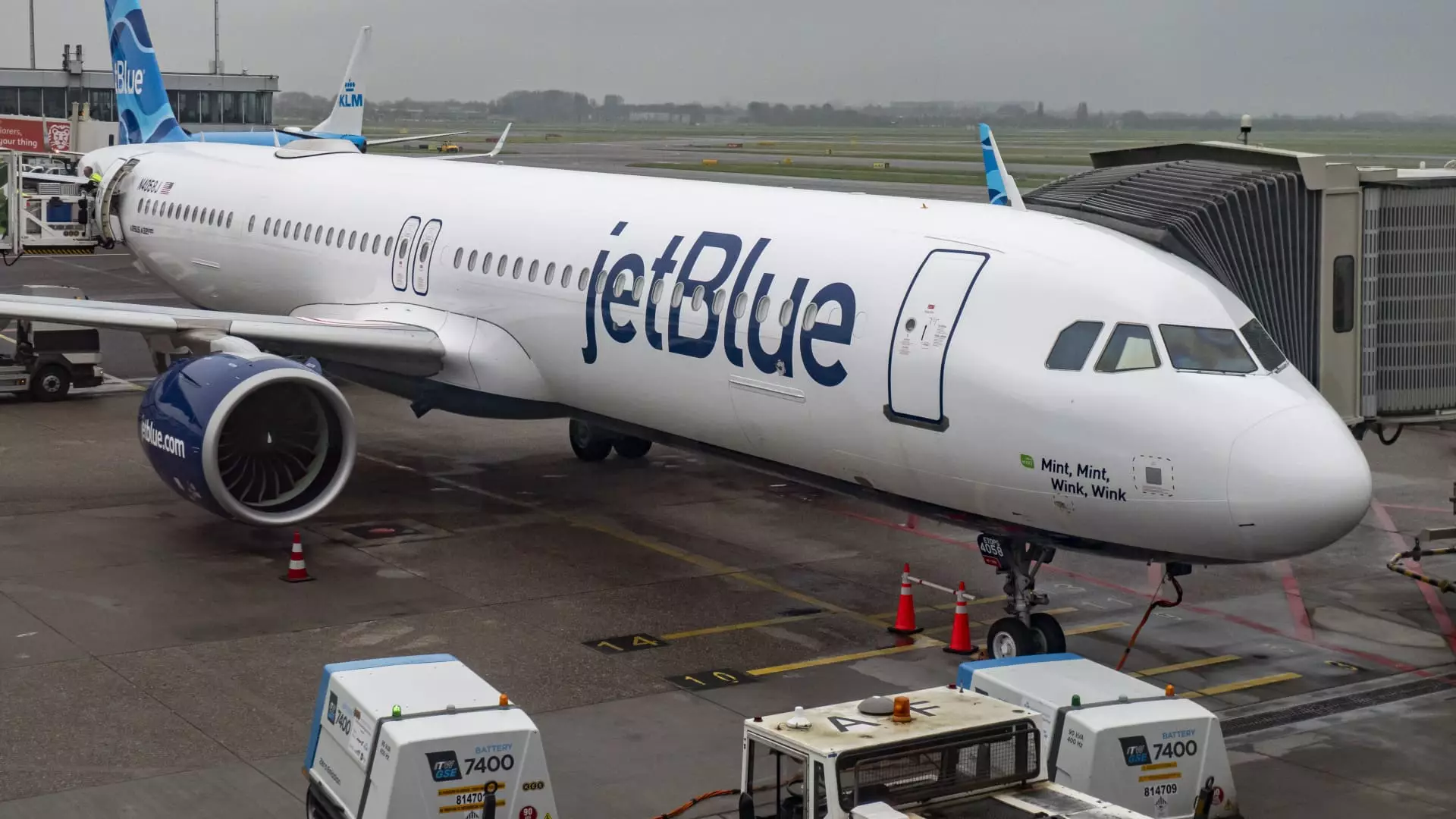JetBlue Airways has recently announced a significant realignment in its flight operations aimed at cutting down unprofitable routes and enhancing operational efficiency. This strategy comes as the airline seeks to stabilize its financial performance following a tumultuous period exacerbated by the COVID-19 pandemic. The carrier’s decision to reduce the frequency of flights, particularly to and from cities like Jacksonville, Austin, and Milwaukee, reflects a tactical shift designed to optimize their network and focus on more lucrative markets.
In a detailed memo to staff, JetBlue’s vice president of network planning, Dave Jehn, outlined the reasoning behind this sharp course correction. The memo emphasized that while Florida generally offers robust travel demand, the Miami market has proven challenging. The dominance of well-established competitors such as American and Delta has thwarted JetBlue’s attempts to establish a foothold in the region. Consequently, JetBlue plans to continue services from Boston while halting operations from JFK to Miami altogether.
A notable aspect of this restructuring involves JetBlue’s premium Mint business class service. The airline plans to withdraw Mint-configured aircraft from Seattle routes starting in April, reallocating these resources to markets characterized by higher demand. This adjustment highlights JetBlue’s response to shifting consumer preferences in air travel, which have evolved significantly since the pandemic. Travelers are increasingly seeking value and comfort, but only in markets where such services justify operational costs.
The focus on specific high-demand markets exemplifies JetBlue’s keen awareness of market dynamics. By concentrating Mint service in select locations where it can generate optimal revenue, the airline aims to drive profitability while maintaining a competitive edge against larger carriers. This indicates a broader strategy to enhance passenger experience while smartly managing resources.
On a brighter note, JetBlue’s restructuring efforts have been met with positive market reactions, evidenced by an over 8% increase in shares following the announcement. This signals investor confidence in the airline’s capability to pivot effectively amidst ongoing sector challenges. Moreover, the company’s commitment to exploring new European services underscores its intent to broaden its international horizons, which could lead to new revenue streams.
As JetBlue works through these changes, it assures affected customers that they will have options, whether that be accepting alternative flight arrangements or processing refunds. This customer-centric approach is essential not only for maintaining loyalty but also for preserving the airline’s reputation in a competitive market.
Ultimately, JetBlue Airways is not just adjusting its flight routes but rather rethinking its operational strategy in light of a changing aviation landscape. The combination of cutting low-performing services and reinforcing profitable routes, particularly in high-demand markets, demonstrates a pragmatic approach to overcoming obstacles. As the airline navigates these turbulent waters, its focus on cost reduction and customer satisfaction will be crucial for achieving long-term financial sustainability and success in an evolving industry.

